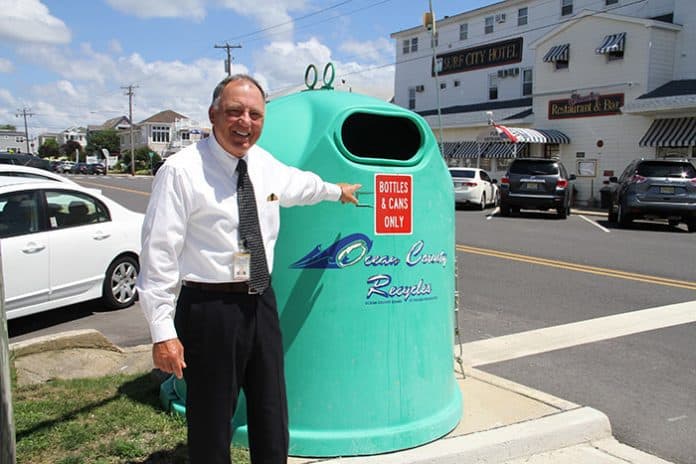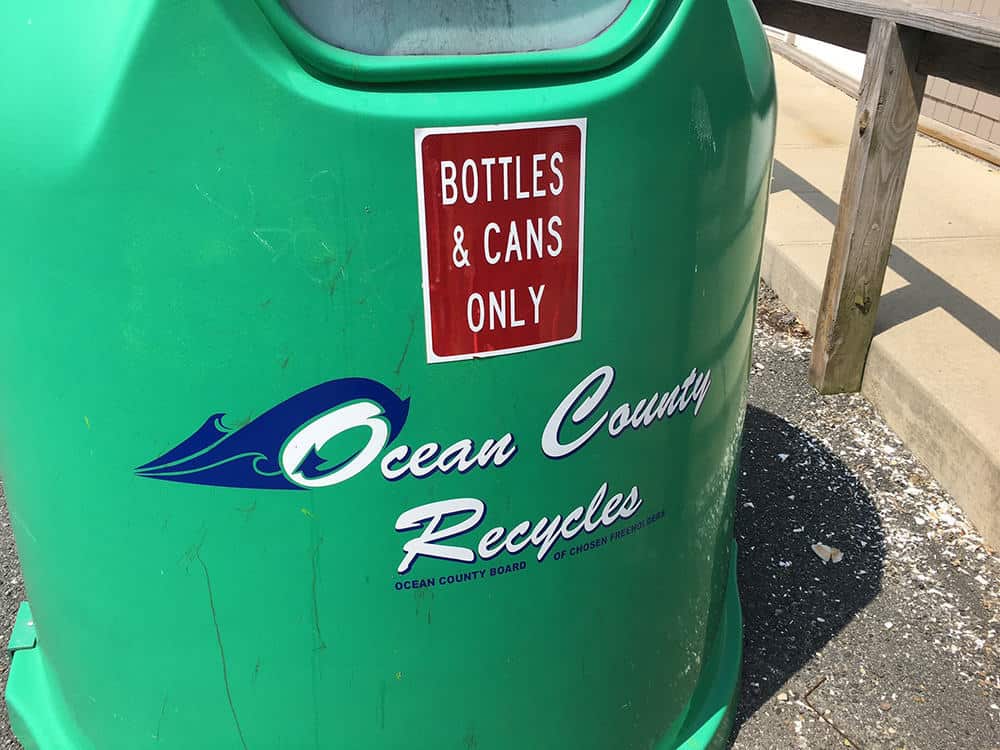
TOMS RIVER – Changes in China’s recycling policies are forcing officials in the United States, including Ocean County, to change its own recycling programs.
Ocean County officials are working with their contractors to invest in upgrades to its program.
“Just like all other states and counties, we too are negatively impacted by China’s major policy changes affecting recyclables,” said Ocean County Freeholder Director Gerry P. Little, who serves as liaison to the County’s recycling program. “In order to keep our recycling programs viable we need to make an investment in new machinery, stepped up enforcement and educational programs.
“Our residents have embraced recycling since it was first implemented in Ocean County in 1988 as the result of a state mandate in 1987,” Little said. “However now more than ever we need everyone to recycle right.”
The county will spend $4 million to replace equipment and make other upgrades to the county’s Recycling Materials Processing Facility in Lakewood. That appropriation was approved Dec. 5.
About $1.5 million of that will come from Atlantic Coast Recycling, which operates the processing facility for Ocean County.

China’s changes on contamination levels and importation restrictions has severely impacted the recycling market prices, Ernest J. Kuhlwein Jr., Director of Solid Waste Management for Ocean County, said.
“China is focusing on recycling their own waste stream and minimizing importation of materials from the United States and other nations,” Kuhlwein said. “This shift in policy by China is resulting in us needing to take a hard look at how we continue to recycle.”
The county’s processing facility was designed and built to produce to earlier market specifications, Kuhlwein explained.
“Some changes to the recycling program and upgraded processing equipment are now needed to ensure the operation is financially secure for the future,” he added.
Those upgrades will include a new glass removal and cleanup system and optical sorters for the paper line to clean paper to current market specifications. They will also implement new screening technology, a new paper baler and associated equipment.
Municipalities and residents need to do their share to ensure that only recyclable materials end up in the recycle bins. Only bottles, cans, cardboard, newspaper, junk mail, magazines, office paper and catalogs should be loosely placed in the curbside recycling bin.
“It is more important than ever that we recycle the proper materials and not add household trash to our recycling bins,” Little said. “We are asking everyone to be more mindful of the materials they recycle and to especially not use plastic bags which have created extensive problems at our processing facility.
“Our recycling program was essentially designed to be financially self-sustaining,” Little said. “Simply put, the cost of the program was covered by revenue generated from the sale of recycled materials. This approach has been successful for three decades.
“Our municipalities have enjoyed our recycling revenue sharing program which has returned more than $16 million to our towns,” Little said. “In addition, we have added years to the privately-run Ocean County Landfill by keeping these materials from using up landfill space.
“That also has resulted in substantial savings for our towns,” Little said.
However, this year was the first in 30 years the County’s recycling operation lost revenue.
“We are taking aggressive steps to make certain our recycling program remains viable now and into the future,” Little said. “There is a lot of work ahead of us. We need our towns to help and we need our citizens to be mindful of how they recycle.
“This program continues to come with significant environmental and economic benefits,” he added. “That is why it is so important to implement these improvements.”







